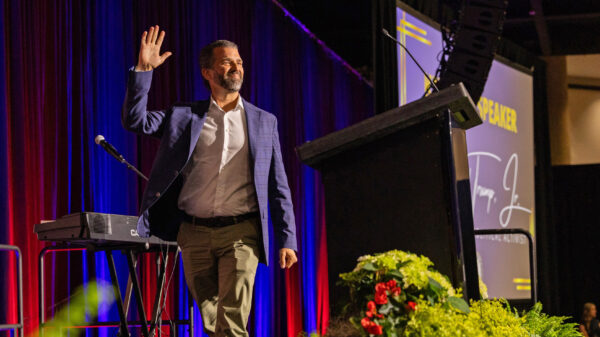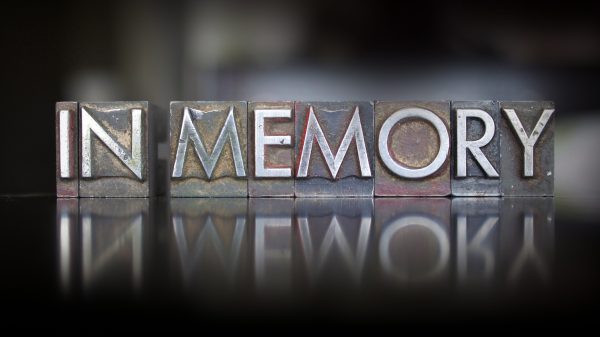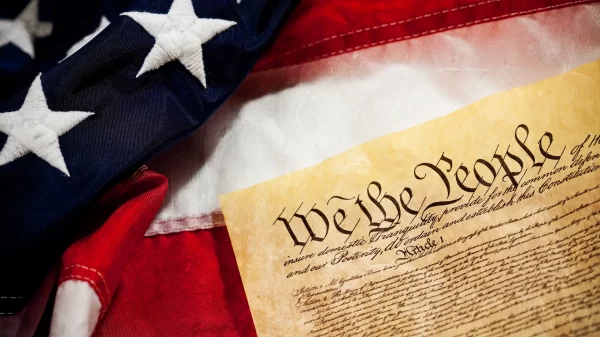Anybody who pays attention knows that the world has a refugee crisis.
What they may not realize is that the United States has a refugee crisis, too. Not a crisis of people fleeing the United States because of persecution or threats of ethnic violence, or an unstable government out of control, or one ruled by a dictator in brutal control — though certainly another column could address the dangers of us becoming one of those nations.
No, the refugee crisis we face is one we’re helping create but refusing to help solve. During President Donald Trump’s first year in office, the U.S. government set a goal of accepting at least 100,000 refugees from around the world. After Trump got settled in, fewer than half that number of refugees were allowed here.
Now, those “goals” are referred to as “caps,” and in the current year the United States has set a “cap” of just 45,000 refugees. It’s doubtful even that modest number will be met. One reason the refugee crisis is so bad is that we intentionally don’t do our part.
As a free and wealthy nation, we have an obligation to take in refugees from other countries that are at war with themselves: Syria, Iraq (we broke it), Afghanistan (we can’t fix it), and many of the unstable African nations always seemingly at war.
Other First World nations are doing what they can; we should be doing even more. We’re the largest of the free, democratic nations in the world. With great power comes great responsibility.
These refugees are not “illegal” immigrants, as xenophobes like to refer to undocumented migrants who come into our country looking for a better life. These are people – good men and women, girls and boys and, yes, babies — who are the targets of ethnic violence or victims of war – many of them the victims of wars we brought brutally to their land.
Deyana Al-Mashhadani is one of these refugees. I met Deyana, now 19, on Thursday during a civil rights tour by refugees under the auspices of the Integrated Refugee & Immigrant Services (IRIS) organization based in New Haven, Conn.
IRIS provides services for hundreds of refugee families. Deyana and 11 other young women visited important civil rights sites in Virginia, Georgia, and Alabama over the past week.
Their pilgrimage was funded completely through private donations. Two Southerners who work for IRIS, Ashley Makar of Birmingham and Laurel McCormack of Georgia, helped put the week-long trip together.
Thursday, I joined the group as it visited the National Memorial for Peace and Justice (the just-opened lynching memorial) and the Legacy Museum in Montgomery. The sites are projects of the Equal Justice Initiative. While the National Memorial for Peace and Justice focuses on lynchings across the South of more than 4,000 African-American men, women, and children between 1877 and 1950, the Legacy Museum deals more with enslavement and unfair incarceration of African-Americans throughout our state’s ugly history.
Both visits were emotional experiences for me; I can’t imagine how the dozen young women refugees were feeling as they observed the exhibits and learned the tumultuous history of our region. What memories will their tour dig up? They’ll write about their experience.
But consider Deyana’s history: Born in Iraq, she and her family fled after the 2003 war started – the one started by us. Her family’s Bagdad home was caught in a crossfire between two rival groups. They huddled in their basement as bullets ripped through their home. After that, the Al-Mashhadanis knew if they stayed: “You die,” said Deyana.
In any event, Deyana said, you see “people die in front of you.”
They relocated as refugees to Syria where they lived for eight years until the civil war exploded there. They moved to Turkey, where after three years, they finally were allowed to come to the United States as refugees.
Deyana and her family are among the lucky few. For the most part, Deyana said, she and her family are treated well. Despite all the forced relocations her family endured, Deyana is well educated. She speaks three languages fluently – Arabic, Turkish, and English – and has started college. She is studying biochemistry and hopes for a medical career.
Yet, so many refugees aren’t as fortunate as Deyana and the other young women on the bus to Montgomery Thursday. The women on the trip this week are from Iraq, Eritrea, the Democratic Republic of Congo, and Congo Brazzaville. They are finishing high school or entering college. Another Iraqi, Fatima Al Rashed, 18, is headed to the University of Pennsylvania this fall on a full academic scholarship.
These women will make America a better nation.
They do remember, however, where they come from. And they know, as well, that they probably can never go back.
“If I was in Iraq, I could never continue my education,” Deyana said, emotion teasing her voice. “My life is here.”
Our nation does have great power. Yes, it does. Nobody will deny that.
But do we understand our great responsibility?
Joey Kennedy, a Pulitzer Prize winner, writes a column every week for Alabama Political Reporter. Email: Jkennedy@alreporter.com.





















































